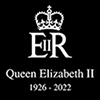The recent Spring Budget introduced significant changes to VAT (Value Added Tax) for businesses – particularly around the registration threshold.
These changes have sparked a discussion, especially amongst our clients on their potential to impact businesses.
VAT is a consumption tax placed on a product whenever value is added at each stage of the supply chain, from production to the point of sale.
The amount of VAT that the user pays is on the cost of the product, less any of the costs of materials used in the product that have already been taxed.
In the UK, there are three main VAT rates: standard (20 per cent), reduced (five per cent), and the zero rate (zero per cent).
The standard rate applies to most goods and services unless they are specifically identified as being reduced or zero-rated.
Businesses with a taxable turnover exceeding the VAT registration threshold, which was £85,000 until recently changed to £90,000, are required to register for VAT.
This registration entails additional responsibilities, such as charging VAT on products or services, paying VAT on goods or services supplied by vendors, and submitting VAT returns to HMRC annually.
Changes to the VAT threshold and implications
The Government has announced an increase in the VAT registration threshold from £85,000 to £90,000, effective from April 1, 2024.
This adjustment is the first of its kind in seven years and aims to alleviate the administrative burden on growing businesses, allowing them more time before they need to register for VAT.
Businesses now approaching this new threshold might view the change as beneficial, as it potentially delays the complexities and administrative responsibilities associated with VAT registration.
However, businesses do have the option for early VAT registration, even if their turnover does not exceed the new threshold.
This voluntary registration can be advantageous, allowing businesses to reclaim input VAT on their expenses and possibly enhancing their credibility with both clients and suppliers.
The Government has also made efforts to simplify VAT compliance for small businesses through various schemes.
For instance, the Flat Rate Scheme, Annual Accounting Scheme, and Cash Accounting Scheme are designed to reduce the administrative burden associated with VAT returns and payments.
Moreover, the Government has extended special reliefs, such as zero-rated relief for energy-saving materials until 2027.
This includes battery storage, water-source heat pumps, and necessary groundworks in heat pump installations, demonstrating support for sustainable business practices.
Early registration for VAT and a note on available allowances
Businesses with a turnover below the threshold might still consider early VAT registration.
This move can enable them to reclaim input VAT on their business expenses, potentially leading to cost savings.
Furthermore, being VAT registered can enhance a business’s profile, signalling its commitment and scale to clients and suppliers.
The UK Government also offers various VAT schemes to assist businesses in managing their VAT affairs more efficiently.
- Flat Rate Scheme: This scheme simplifies the VAT process for small businesses by allowing them to pay VAT as a fixed percentage of their turnover, rather than calculating the VAT on each transaction. The percentage varies by industry but is intended to approximate the net VAT owed. This scheme can save time and reduce the administrative burden associated with VAT accounting, making it particularly beneficial for businesses with a turnover of £150,000 or less (excluding VAT).
- Annual Accounting Scheme: Businesses using this scheme submit only one VAT return per year instead of the usual four, which can significantly reduce paperwork and make VAT payments more predictable. They make nine monthly, or three quarterly interim payments based on the last return (or estimated if newly registered) throughout the year, with a balancing payment due with the annual return. This scheme is available to businesses with an expected annual turnover of no more than £1.35 million.
- Cash Accounting Scheme: Under this scheme, VAT is paid to HMRC based on when the payment is received from customers, rather than when the invoice is issued. This can be particularly beneficial for businesses that experience delays in receiving payments from customers, as it helps to improve cash flow. The scheme is available to businesses with a VAT taxable turnover of up to £1.35 million. Once on the scheme, they can continue using it until their turnover reaches £1.6 million.
These schemes aim to simplify the calculation of payable VAT, reducing the need for detailed record-keeping and calculations.
Additionally, special reliefs, like the zero-rated relief for energy-saving materials, support businesses in adopting environmentally sustainable practices.
The changes to the VAT registration threshold and the introduction of various reliefs and schemes in the Spring Budget 2024 present both opportunities and considerations for businesses.
While the increased threshold may relieve some businesses from the administrative duties of VAT registration, it’s crucial for all businesses to understand the full scope of the changes and how they can best navigate the new VAT landscape.
Consulting with a tax adviser could provide personalised insights and strategies to maximise the benefits of these changes.
If you wish to discuss your VAT obligations, please contact one of our team.







